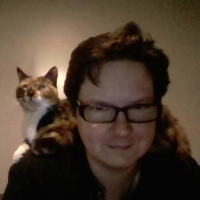Podcast: Play in new window | Download
Subscribe: RSS
Welcome To Eurovision Wars
Eurovision Wars is a series of podcasts exploring geopolitical themes as they emerged on the Eurovision Song Contest stage. You can listen to Seasons 1 and 2 in full on Spotify, covering such topics as the Russia-Ukraine War, and the long-running dispute between Azerbaijan and Armenia. For Season 3, the podcast moves to its new home at ESC Insight, and will focus on the many controversies of Eurovision 2024. In particular, hosts Phil Doré and Ana Oppenheim will attempt to contextualise the fierce rows over the Israeli entry for Malmö 2024.
In episode two, we look at the National Selections of HaKokhav HaBa in Israel and al Söngvakeppnin in Iceland. Two artists stood out in these competitions. We will consider both ‘October Rain‘ and ‘Hurricane‘ from Israeli singer Eden Golan, and ‘Wild West/Vestrið villt‘ from Palestinian singer Bashar Murad.
What viewpoints did they represent, how did the community and the organisers react to these songs, and why do many consider them political songs?
Our Principles Of Discussion
Before we go on, a quick reminder of the principles we are holding to in this series. Discussing Israel and Palestine is inevitably difficult and polarising, so in episode one, we introduced three ground rules to frame our podcasts.
Be willing to keep more than one thought in your head.
It can be true that the founding of the state of Israel was in response to centuries of antisemitism and the horrors of the Holocaust, and also that its founding was marked by massacres and forced displacement of the local Arab population. Likewise, it can be true that Israelis have a right not to be victims of Hamas terrorism, and Palestinians have a right not to be bombed by Israeli warplanes. These are not contradictory.
Explanation is not justification.
When we say that decades of oppression against the Palestinians contributed to October 7th, that is not to justify the atrocities of that day. Likewise, in describing those atrocities, this does not render the mass destruction inflicted by Israel on Gaza acceptable.
If one side in a conflict commits a war crime, that doesn’t mean the other side gets a free war crime.
Because, unbelievably, that point still has to be made.

Eurovision stage concept for Malmo 2024 (EBU / SVT)
If we are to fully understand how the Eurovision Song Contest became so controversial in 2024, then this inevitably leads to difficult conversations. But these are conversations we absolutely need to have as a community.
You can find previous Eurovision Wars episodes on ESC Insight here.









